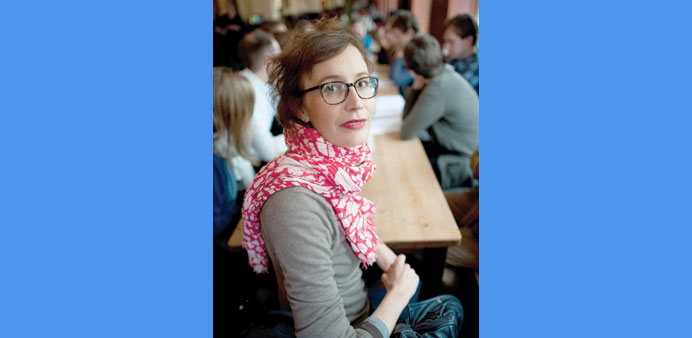LIFE AFTER CANCER: Berlin woman Sabine Schreiber, 40, recovered from cancer, but was later hit by fatigue syndrome, a common after-effect. She now heads a self-help group in the German capital.
By Eva Dignoes
The surgery, chemotherapy or radiation treatments are over and convalescence has restored the patient’s energies and zest for life. But even a cancer battle won can keep taking its toll.
“Many cancer patients initially experience a huge sense of happiness,” after the main recovery, says Martin Wickert, head of the psycho-social cancer counselling centre at the University Hospital in Tuebingen, southern Germany.
They try to get back to everyday life as quickly as possible and then realise that this is harder than they had imagined.
“Often there are after-effects of treatment that people don’t pay so much attention to, but which over time can get serious,” says the psychologist.
A person’s performance in many areas may not be what it used to be. Things they used to do without much effort tire them much faster, and everyday activities become more difficult, because nerve damage has numbed their hands or feet.
“People severely underestimate how long the consequences of therapy last,” says Professor Dirk Jaeger, director of medical oncology at the National Centre for Tumour Diseases in Heidelberg.
Sabine Schreiber, chairman of the Berlin association “Life After Cancer”, recalls how she hastened back to work 13 months after leukaemia treatment with chemotherapy and radiation.
“Because I thought that I could easily go back to my old life,” the 40-year-old says. After a year, Schreiber realised that things were “no longer the same”, and she was diagnosed with fatigue syndrome.
This common side-effect or after-effect of cancer manifests itself in severe physical and mental exhaustion, which cannot be alleviated by rest or sleep.
But for family and friends cancer, after-effects are often hard to understand because they are not usually outwardly visible. “People around you think that once your hair grows back, everything is back to normal. And you must generally deal with the long-term consequences alone,” Schreiber says.
Psychological stresses are often pushed into the background during the physical battle, says oncologist Jaeger.
“This life-threatening experience is shocking and can take a long time to process. Knowing that cancer can slam into you like an ocean wave can cause deep insecurity, grief reactions and sometimes depression, because perspectives on life and security have been lost,” says the psychologist Wickert.
This can rob people of confidence and self-esteem amid fear that the tumour can grow again. How long this real danger of recurrence exists depends on the type of the disease.
“With colon cancer, where the tumour has been fully removed, you almost never hear about relapses within the next five years,” says Jaeger. “But for breast or skin cancer, a recurrence is possible, and it might wait 10 or 15 years to happen.”
To find competent help in coping with these stresses is often not easy, Wickert says. Such cases usually do not fit the standard clinical treatment routines of psychotherapists.
“And affected people also do not want to face a continuation of being ‘ill’ and having to start a new course of therapy.”
For such cases, Germany offers cancer counselling centres supported by welfare associations, societies or hospitals.
Such resources can help patients and relatives cope through psychological and medical counselling as well as assisting the return to work or when applying for welfare benefits. Another consequence of cancer is that many sufferers are left financially stretched because they do not work during the time of therapy or cannot return to their old job.
Schreiber also turned to the Cancer Society in Berlin for help during her recovery, which ultimately inspired her to found a self-help group.
“After not being able to work for months, it was a great feeling to win the confidence of others [while helping them],” she recalls. “I could put my professional skills and experience to good use.”
Together with other stakeholders, she has built up the “Life After Cancer” advocacy group to focus on young survivors, teaching them to consciously look ahead and offering them support in psycho-social issues after their recovery. One focus is on the re-entry into working life.
“Self-help groups can give good assistance to professional resources, because the advice and experience affected people can offer are the real thing,” says Wickert. But he also notes that these groups have their limits. “They are not for everyone, because some people simply do not want to be confronted with their illness again.”
Hearing the experiences of affected people or just the act of participating in a follow-up course can bring back painful memories of people’s own sickness and intensify the associated fears.
“This is probably never fully overcome,” says Wickert. “But the goal is to regain as much confidence as possible and look at the future again with hope.” —DPA

